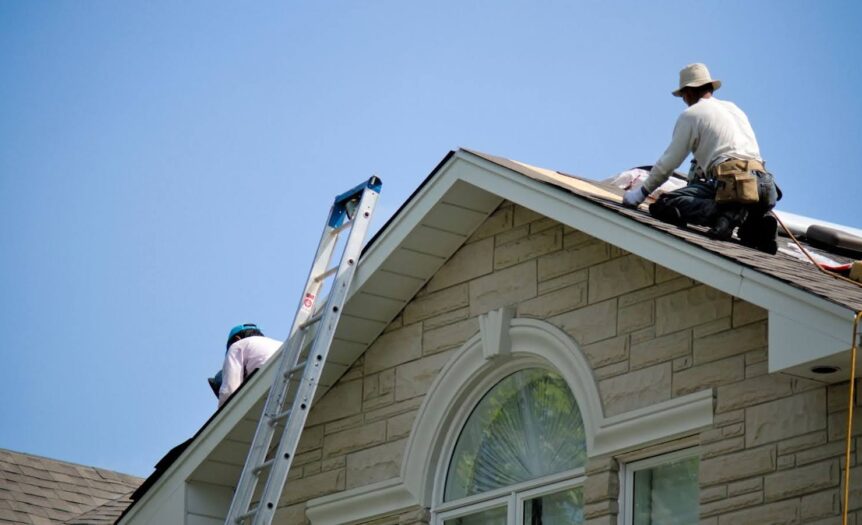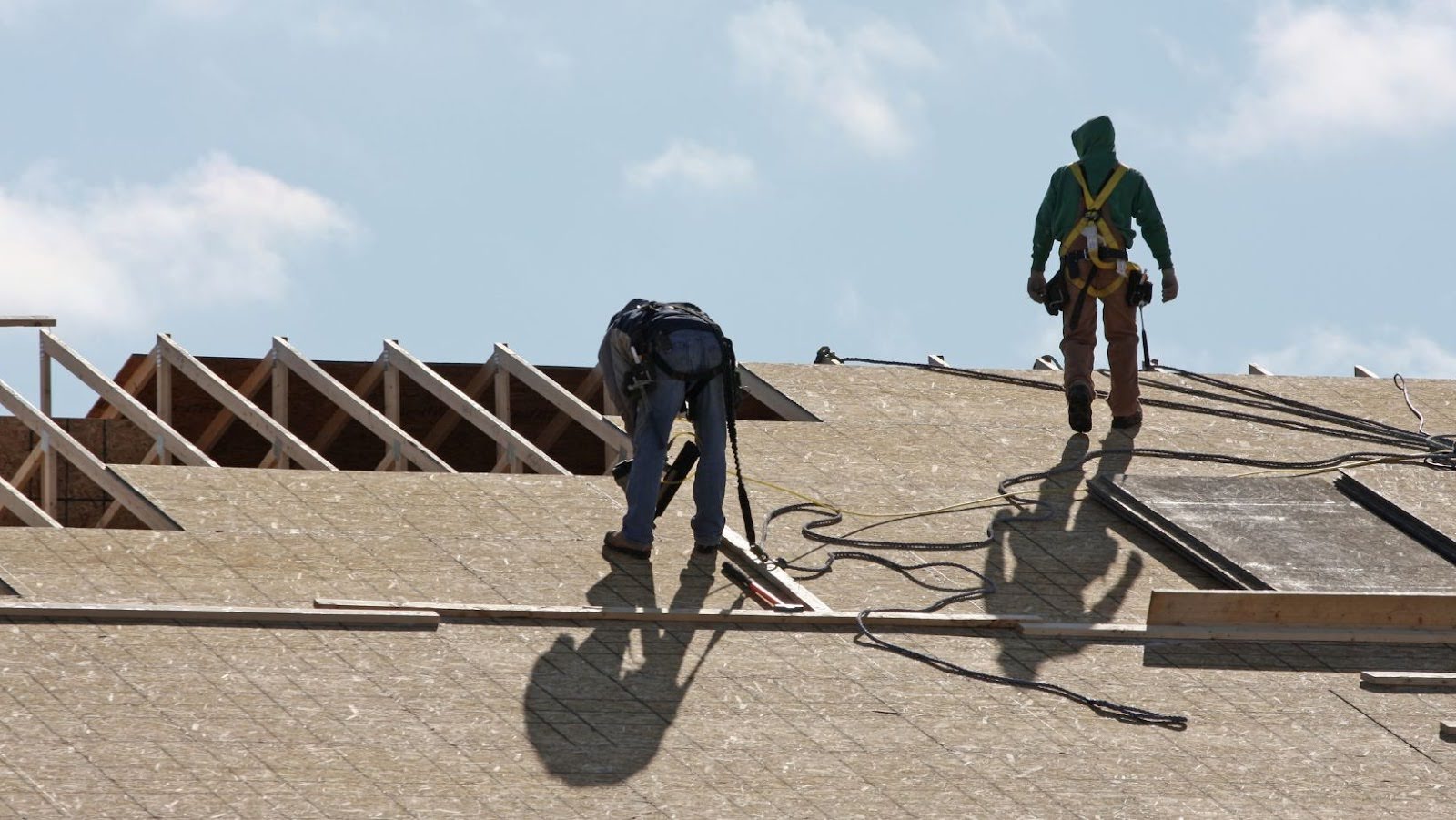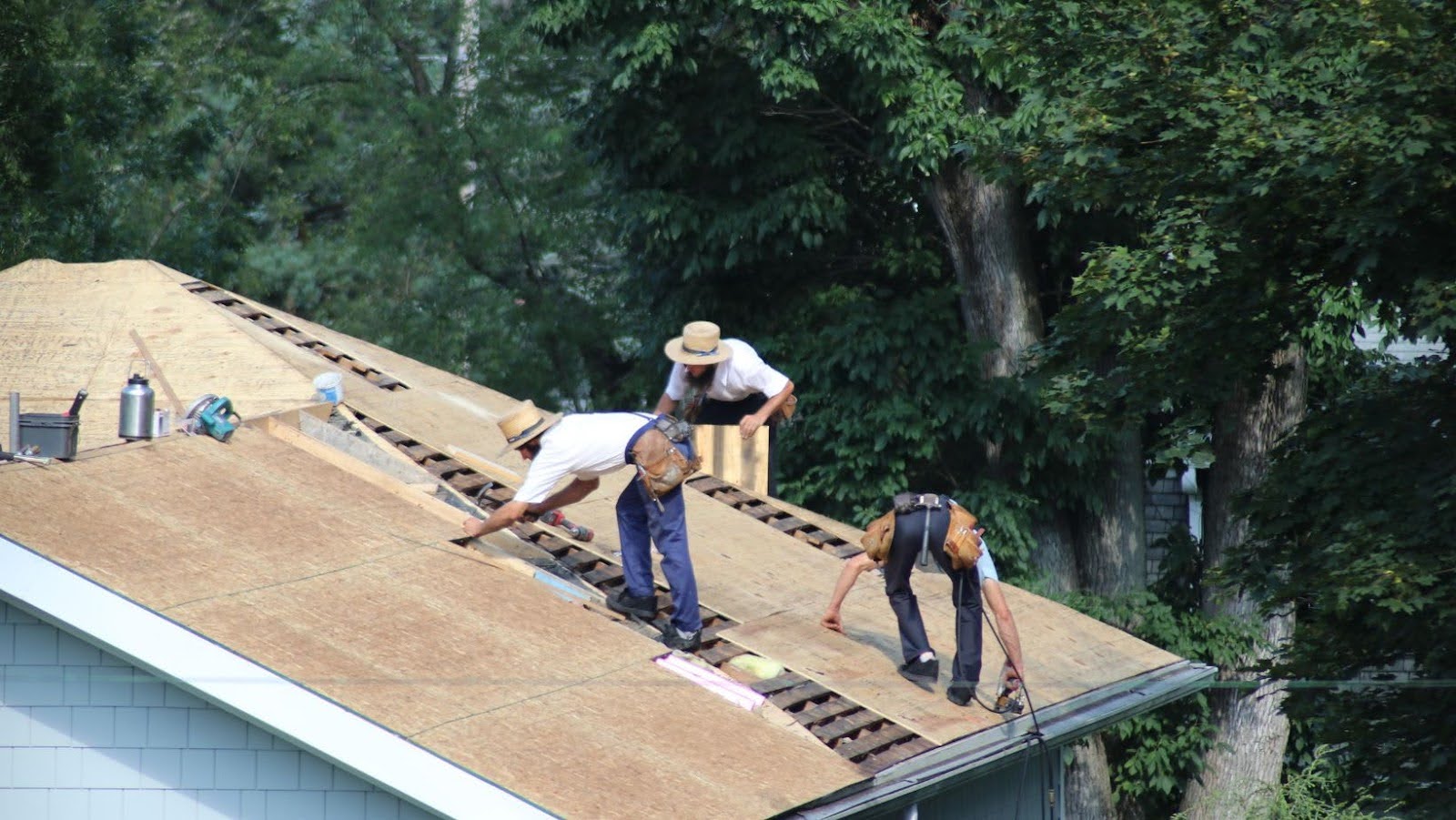Planning for roof replacement in Charlotte requires seven essential steps: assess your roof’s condition and replacement needs, select climate-appropriate materials, choose a licensed and insured contractor, obtain proper permits, schedule the project during favorable weather, and plan for ongoing maintenance. This comprehensive process typically takes 2-4 weeks from planning to completion and ensures your investment protects your property for decades to come.
Charlotte, North Carolina’s unique climate presents specific challenges for homeowners and business owners when it comes to maintaining their roofs. From humid summers to occasional severe weather events, your roof bears the brunt of Mother Nature’s elements year-round. Understanding when and how to plan for a roof replacement can save you thousands of dollars and protect your property investment.
Understanding Charlotte’s Climate Impact on Roofing
The Queen City experiences a humid subtropical climate that can be particularly demanding on roofing materials. Hot, humid summers with temperatures often exceeding 90°F create expansion and contraction cycles that stress roofing components. Meanwhile, winter months bring freezing temperatures and occasional ice storms that can cause significant damage to compromised roofing systems.
Charlotte’s weather patterns include frequent thunderstorms during spring and summer months, with the potential for hail damage and high winds. These conditions make it essential for property owners to maintain vigilant oversight of their roofing systems and plan proactively for replacement when necessary.
Recognizing When Your Roof Needs Replacement
Several warning signs indicate that your Charlotte property may need a new roof. Age is often the primary factor, with most asphalt shingle roofs lasting 20-25 years in North Carolina’s climate. However, other indicators can signal the need for earlier replacement.
Key warning signs include:
- Missing or damaged shingles, particularly after severe weather events, which create vulnerable spots for water infiltration and further damage
- Granule loss from asphalt shingles that creates bare spots, leaving your roof vulnerable to UV damage and accelerated deterioration
- Curling or buckling shingles that suggest your roofing material has reached the end of its useful life and can no longer provide adequate protection
- Water stains on ceilings or walls that indicate active leaks and compromised roofing integrity requiring immediate attention
- Musty odors suggesting mold growth, which can develop rapidly in Charlotte’s humid climate and pose health risks to occupants
- Visible daylight through roof boards, indicating structural gaps that allow moisture and pest infiltration
Interior signs are equally important to monitor, as they often reveal problems before exterior damage becomes obvious. In Charlotte’s humid climate, these issues can quickly escalate into major structural problems if left unaddressed.
For commercial properties, flat or low-slope roofing systems present unique challenges. Ponding water, membrane deterioration, and HVAC equipment damage are common issues that may necessitate commercial roof replacement charlotte nc services.
Financial Planning and Budgeting
Several factors influence replacement costs in the Charlotte market. Material selection plays a crucial role, with basic asphalt shingles being the most economical option, while premium materials like slate, tile, or metal command higher prices but offer superior longevity. Roof complexity, including multiple levels, steep pitches, and numerous penetrations, increases labor costs significantly. Whether you’re researching roof replacement charlotte nc options for residential properties or commercial roof replacement charlotte nc services for business facilities, understanding these cost variables helps in accurate budget planning.
Timing your replacement strategically can impact costs. While emergency replacements during peak storm season may command premium pricing, planning your project during contractors’ slower periods can result in better rates and scheduling flexibility.
Many Charlotte homeowners explore financing options to manage replacement costs. Home equity loans, personal loans, and contractor financing programs can help spread expenses over manageable timeframes. Some roofing companies offer seasonal promotions or cash discounts that can reduce overall project costs.
Insurance coverage may offset a portion of replacement costs, particularly when damage results from covered perils like storms or hail. Understanding your policy’s coverage limits and deductible requirements helps in financial planning.
Selecting the Right Materials for Charlotte’s Climate
Material selection significantly impacts your roof’s performance in Charlotte’s challenging climate. Understanding the benefits and limitations of each option helps ensure optimal performance and value for your investment.
Popular roofing materials for Charlotte include:
- Asphalt shingles remain the most popular choice due to their affordability and adequate performance in moderate climates, with architectural shingles offering improved aesthetics and durability compared to basic three-tab options
- Metal roofing has gained popularity in Charlotte due to its excellent performance during severe weather and superior energy efficiency, with steel, aluminum, and copper options providing decades of reliable service with minimal maintenance requirements
- Clay and concrete tiles offer exceptional durability and weather resistance but require structural evaluation to ensure adequate support, excelling in Charlotte’s climate while representing significant initial investments
- TPO, EPDM, and modified bitumen systems dominate the commercial flat roofing market, with each material offering specific advantages depending on building requirements, budget constraints, and expected service life
Metal roofs deserve special consideration in Charlotte’s climate as they reflect solar heat effectively, reducing cooling costs during the area’s hot summers. This energy efficiency can result in substantial utility savings over the roof’s lifespan, often offsetting the higher initial investment costs.
Choosing the Right Contractor
Selecting a qualified contractor is perhaps the most critical decision in your replacement project. Charlotte’s competitive roofing market includes numerous contractors, but quality and reliability vary significantly.
Start by verifying licensing and insurance requirements. North Carolina requires roofing contractors to maintain proper licensing, and reputable companies carry comprehensive liability and workers’ compensation insurance. Request certificates and verify coverage directly with insurance providers.
Local references provide valuable insights into contractor performance. Established Charlotte contractors should readily provide references from recent projects and maintain positive relationships with local suppliers and building officials. When evaluating charlotte replacement roofing contractors, ask for specific examples of similar projects completed in your area within the past two years.
Industry certifications from manufacturers like GAF, CertainTeed, or Owens Corning indicate advanced training and commitment to quality installation practices. Certified contractors often provide enhanced warranty coverage and access to premium materials.
Obtain detailed written estimates from multiple contractors to compare pricing, materials, and project timelines. Beware of door-to-door solicitors or contractors demanding full payment upfront, as these practices often indicate fraudulent operations.
Navigating Permits and Regulations
Charlotte requires building permits for most roof replacement projects, and understanding local requirements prevents delays and compliance issues. The city’s permitting process involves plan review, fee payment, and scheduled inspections throughout the project.
Permit applications typically require detailed project plans, material specifications, and contractor information. Processing times vary based on project complexity and seasonal workloads, so factor permit approval into your project timeline.
Historic districts in Charlotte may have additional restrictions governing material selection and installation methods. Properties in these areas require design review board approval before beginning work.
Homeowner association covenants may also restrict material choices or require architectural approval. Review your HOA documents and obtain necessary approvals before finalizing material selections.
Step-by-Step Replacement Process
- Initial Assessment and Planning Phase – Conduct thorough roof inspection, document existing conditions, and develop detailed project specifications including material selection and timeline development.
- Contractor Selection and Contracting – Obtain multiple detailed bids, verify licensing and insurance, check references, and execute comprehensive contracts outlining all project details.
- Permit Application and Approval – Submit required documentation to Charlotte building department, pay applicable fees, and await approval before beginning work.
- Material Procurement and Delivery – Order specified materials, coordinate delivery timing with project schedule, and ensure proper storage and protection on-site.
- Preparation and Tear-Off – Protect landscaping and property, remove existing roofing materials, inspect and repair deck structural issues as needed.
- Installation of New Roofing System – Install underlayment, flashing, and roofing materials according to manufacturer specifications and local building codes.
- Quality Control and Final Inspection – Conduct thorough quality review, obtain required building department inspections, and complete final cleanup and project documentation.
Weather considerations significantly impact project timelines in Charlotte. Summer thunderstorms can cause daily delays, while winter weather may extend project duration. Experienced contractors specializing in roof replacement charlotte nc understand these local conditions and plan for weather contingencies while maintaining flexible scheduling to accommodate Charlotte’s unpredictable climate patterns.
Insurance and Warranty Considerations
Understanding insurance coverage and warranty protection is essential for making informed decisions about your roof replacement charlotte nc project. Homeowner’s insurance policies typically cover storm-related damage but may exclude wear and normal aging.
Document existing damage thoroughly with photographs and professional assessments before filing insurance claims. Insurance adjusters evaluate damage based on policy terms and may require multiple inspections before approving coverage.
Manufacturer warranties vary significantly between products and installation methods. Basic shingle warranties may cover 20-30 years for materials but exclude labor costs. Premium warranties often include installation coverage when certified contractors perform the work.
Contractor workmanship warranties supplement manufacturer coverage and typically address installation-related issues for 1-10 years. Understand warranty terms, exclusions, and claim procedures before signing contracts.
Keep detailed documentation of your project, including permits, contracts, material receipts, and warranty information. This documentation proves valuable for future warranty claims, insurance issues, or property sales.
Maintenance and Long-Term Care
Proper maintenance extends your new roof’s service life and preserves warranty coverage. Charlotte’s climate requires specific maintenance attention to prevent premature deterioration and costly repairs.
Regular inspections, particularly after severe weather events, help identify minor issues before they become major problems. Look for loose or damaged shingles, clogged gutters, and signs of water infiltration around penetrations and flashing.
Gutter maintenance is crucial in Charlotte’s climate, where falling leaves and debris can quickly clog drainage systems. Clean gutters twice annually and ensure proper drainage away from your foundation.
Tree maintenance around your property protects your investment by preventing branch damage during storms and reducing organic debris accumulation. Trim overhanging branches and remove dead trees that pose risks to your roofing system.
Professional annual inspections by qualified contractors can identify potential issues early and maintain warranty compliance. Many charlotte replacement roofing companies offer maintenance programs that include regular inspections and minor repairs.
Energy Efficiency and Environmental Considerations
Modern roofing materials offer significant energy efficiency improvements that can reduce utility costs and environmental impact. In Charlotte’s hot climate, reflective roofing materials can substantially reduce cooling costs during summer months.
Cool roof technologies, including reflective shingles and coatings, meet ENERGY STAR requirements and may qualify for utility rebates or tax incentives. These materials reduce heat absorption and lower attic temperatures, decreasing air conditioning demands.
Consider ventilation improvements during replacement projects. Proper attic ventilation removes excess heat and moisture, extending material life and improving indoor comfort. Ridge vents, soffit vents, and powered ventilation systems work together to create effective air circulation.
Environmental considerations include material recyclability and disposal methods. Many asphalt shingles can be recycled into road paving materials, while metal roofing offers excellent recyclability at the end of its service life.
Final Thoughts
Planning for roof replacement in Charlotte requires careful consideration of climate factors, material selection, contractor choice, and long-term maintenance requirements. The investment in quality materials and professional installation pays dividends through enhanced protection, energy efficiency, and property value.
Success depends on thorough planning, realistic budgeting, and working with qualified professionals who understand Charlotte’s unique roofing challenges. Your roof represents one of your property’s most critical systems, protecting your investment from Charlotte’s challenging weather conditions. Following the seven-step planning process outlined in this guide ensures decades of reliable service and peace of mind for property owners throughout the Queen City region.





